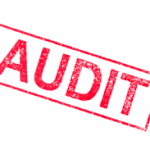A Comprehensive Guide to Various Income Tax Forms in India
Introduction
The Indian taxation system can be quite complex, with numerous forms and filings required from individuals and entities to comply with the Income Tax Act, 1961. Among these, Form 2B, Form 2C, Form 2E, Form 3AA, Form 3AAA, Form 3AC, Form 3AD, and Form 3AE are essential documents that serve specific purposes in income tax assessment, reporting, and auditing. In this comprehensive guide, we will delve into the details of each of these forms, outlining their significance and when they are applicable.
Form 2B – Return of Income for Block Assessment
Form 2B is a crucial document used for block assessments. Block assessments are a special provision under the Income Tax Act, typically conducted for cases involving undisclosed income or assets over a specific period. Individuals or entities subject to a block assessment must file Form 2B to disclose their income and assets during the relevant block period. This form requires comprehensive information on income, assets, and liabilities to facilitate a thorough assessment.
Form 2C – Return of Income for Persons
Form 2C is a standard income tax return form for individuals and entities other than companies. This form is applicable to taxpayers who do not have income from business or profession, capital gains, or agricultural income. It includes sections for reporting various sources of income, deductions, and exemptions. Form 2C helps individuals and entities meet their annual tax obligations accurately.
Form 2E – NAYA SARAL – Income-tax Return Form
Form 2E, also known as NAYA SARAL, is designed for resident individuals and Hindu Undivided Families (HUFs) who do not have income from business or profession, capital gains, or agricultural income. This simplified form aims to streamline the tax return process for taxpayers with straightforward income sources. It includes sections for reporting income, deductions, and exemptions.
Form 3AA – Report under Section 32(1)(iia) of the Income-tax Act, 1961
Form 3AA is a specialized report required under Section 32(1)(iia) of the Income Tax Act. This section pertains to the depreciation allowance on new plant and machinery. When an entity acquires new plant and machinery and claims a higher depreciation allowance, it needs to submit Form 3AA, which contains details about the asset, its usage, and the applicable depreciation rate.
Form 3AAA – Audit Report under Section 32AB(5)
Form 3AAA is an audit report that comes into play under Section 32AB(5) of the Income Tax Act. This section deals with investment allowance and additional depreciation on a new plant or machinery. Taxpayers who wish to claim these allowances must file Form 3AAA, providing comprehensive information about the investments made and depreciation claimed.
Form 3AC – Audit Report under Section 33AB(2)
Form 3AC is used for reporting under Section 33AB(2) of the Income Tax Act, which concerns investment deposit accounts. This form is crucial for entities that maintain investment deposit accounts as it provides detailed information about the accounts, transactions, and compliance with the relevant tax provisions.
Form 3AD – Audit Report under Section 33ABA(2)
Form 3AD is an audit report required under Section 33ABA(2) of the Income Tax Act, which deals with the deposits in an account maintained by an eligible assessee. The form seeks detailed information about the deposits, interest income, and compliance with the provisions of Section 33ABA.
Form 3AE – Audit Report under Section 33AC
Form 3AE is essential for entities claiming a deduction under Section 33AC of the Income Tax Act, which pertains to investment-linked deduction in certain businesses. This form includes details of the investment, the business activities, and compliance with the section’s provisions.
Form 3B – Application for approval of issue of public companies or private companies for claiming deduction under section 35AC: Form 3B is utilized by organizations seeking approval for issuing shares or debentures to raise funds for eligible projects under Section 35AC of the Income Tax Act. This section provides deductions for donations made to specified projects or schemes, and Form 3B is instrumental in obtaining approval for such deductions.
Form 3BB – Statement of donations received: Under Section 80G of the Income Tax Act, individuals or entities making donations to eligible charitable organizations can claim deductions. Form 3BB is filed by these charitable organizations to provide details of donations received. It helps donors in claiming deductions while ensuring transparency in the donation process.
Form 3CA, Form 3CB, and Form 3CD – Audit Reports under Section 44AB: These three forms are crucial for businesses and professionals subject to tax audits as per Section 44AB of the Income Tax Act. Form 3CA is for taxpayers who are required to get their accounts audited, Form 3CB is for chartered accountants to furnish their audit report, and Form 3CD contains the details of audit findings, financial statements, and tax compliance.
Form 3CEB – Report from an accountant to be furnished under section 92E: This form is essential for entities engaged in international transactions or specified domestic transactions. Section 92E mandates the filing of this form, which is essentially a transfer pricing report. It ensures that transactions between related entities are conducted at arm’s length prices to prevent tax evasion.
Form 3CEG – Report from a valuer to be furnished under section 92D: This form is required when a taxpayer enters into an international transaction and obtains a valuation report under Section 92D. It is necessary to substantiate the fair market value of the assets, income, or consideration involved in such transactions.
Form 3CF – Report from an accountant to be furnished under sub-section (3) of section 92E: Similar to Form 3CEB, Form 3CF is used to report compliance with the provisions of transfer pricing, specifically under sub-section (3) of Section 92E.
Form 3CH – Audit report under section 10(23C)(iv)/(v)/(vi)/(via): Educational institutions, hospitals, and research institutions that are eligible for tax exemptions under Section 10(23C) are required to file Form 3CH. This form includes details of income, expenditure, and compliance with the conditions specified under the section.
Form 3CI – Audit report under section 80HHC/80HHE/80HHF/80HHG: Businesses engaged in exports or in the business of hotel operations and infrastructure development can claim deductions under Sections 80HHC, 80HHE, 80HHF, and 80HHG. Form 3CI is essential for auditors to report on the eligibility and quantum of deductions claimed.
Conclusion
The Indian income tax system encompasses a wide array of forms tailored to various scenarios and provisions. Understanding the purpose and significance of these forms is crucial for taxpayers, auditors, and professionals in the financial sector. Accurate and timely filing of these forms ensures compliance with the law and enables taxpayers to benefit from the deductions, exemptions, and provisions available to them.
Source: Taxmann – Direct Tax Laws – Forms – Income tax Forms




